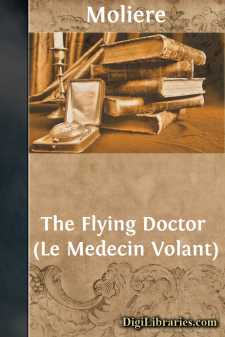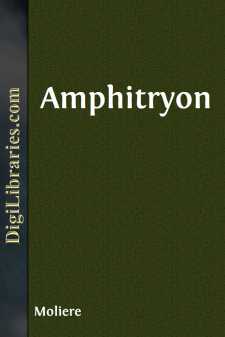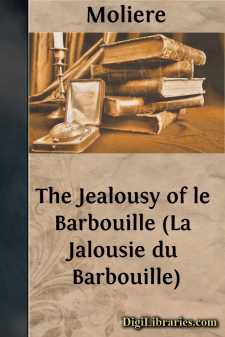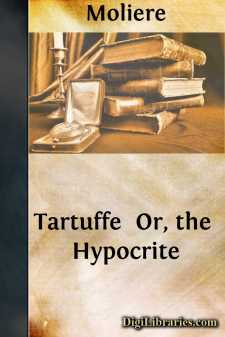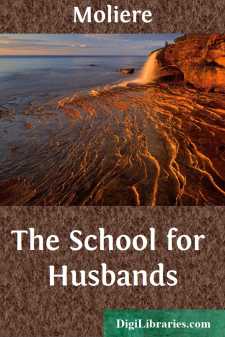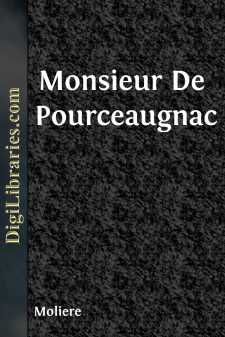Categories
- Antiques & Collectibles 13
- Architecture 36
- Art 48
- Bibles 22
- Biography & Autobiography 815
- Body, Mind & Spirit 144
- Business & Economics 28
- Children's Books 18
- Children's Fiction 14
- Computers 4
- Cooking 94
- Crafts & Hobbies 4
- Drama 346
- Education 58
- Family & Relationships 59
- Fiction 11833
- Games 19
- Gardening 17
- Health & Fitness 34
- History 1378
- House & Home 1
- Humor 147
- Juvenile Fiction 1873
- Juvenile Nonfiction 202
- Language Arts & Disciplines 89
- Law 16
- Literary Collections 686
- Literary Criticism 179
- Mathematics 13
- Medical 41
- Music 40
- Nature 179
- Non-Classifiable 1768
- Performing Arts 7
- Periodicals 1453
- Philosophy 65
- Photography 2
- Poetry 896
- Political Science 203
- Psychology 44
- Reference 154
- Religion 515
- Science 126
- Self-Help 85
- Social Science 82
- Sports & Recreation 34
- Study Aids 3
- Technology & Engineering 59
- Transportation 23
- Travel 463
- True Crime 29
Moliere
Molière, born Jean-Baptiste Poquelin in 1622, was a French playwright and actor widely regarded as one of the greatest masters of comedy in Western literature. His works, such as "Tartuffe," "The Misanthrope," and "The Imaginary Invalid," deftly satirized the hypocrisies and follies of society, blending wit with social critique. Despite facing opposition and censorship from powerful factions, Molière's enduring legacy lies in his profound impact on the development of modern theatre and his keen insights into human behavior.
Author's Books:
Sort by:
by:
Moliere
SCENE I.——VALÈRE, SABINE. Val. Well, Sabine, what do you advise me to do? Sab. I have really much to tell you. My uncle is bent upon marrying my cousin to Villebrequin, and things have gone so far, that I believe the wedding would have taken place to-day if you were not loved by her. However, as my cousin told me the secret of all the love she feels for you, and as we were almost driven to...
more...
by:
Moliere
PROLOGUE MERCURY, on a cloud; NIGHT, in a chariot drawn by two horses MERC. Wait! Gentle Night; deign to stay awhile: Some help is needed from you. I have two words to say to you from Jupiter. NIGHT. Ah! Ah! It is you, Seigneur Mercury! Who would have thought of you here, in that position? MERC. Well, feeling tired, and not being able to fulfil the different duties Jupiter ordered me, I quietly sat...
more...
by:
Moliere
SCENE I.——LE BARBOUILLÉ. Bar. Everybody must acknowledge that I am the most unfortunate of men! I have a wife who plagues me to death; and who, instead of bringing me comfort and doing things as I like them to be done, makes me swear at her twenty times a day. Instead of keeping at home, she likes gadding about, eating good dinners, and passing her time with people of I don't know what...
more...
by:
Moliere
ACT I SCENE I MADAME PERNELLE and FLIPOTTE, her servant; ELMIRE, MARIANE, CLEANTE, DAMIS, DORINE MADAME PERNELLE Come, come, Flipotte, and let me get away. ELMIRE You hurry so, I hardly can attend you. MADAME PERNELLE Then don't, my daughter-in law. Stay where you are. I can dispense with your polite attentions. ELMIRE We're only paying what is due you,...
more...
by:
Moliere
ACT I. SCENE I.——VALÈRE, ÉLISE. Val. What, dear Élise! you grow sad after having given me such dear tokens of your love; and I see you sigh in the midst of my joy! Can you regret having made me happy? and do you repent of the engagement which my love has forced from you? Eli. No, Valère, I do not regret what I do for you; I feel carried on by too delightful a power, and I do not even wish that...
more...
by:
Moliere
ACT I. SCENE I.—DONNA ELVIRA, ELIZA. ELVIRA. No, the hidden feelings of my heart were not regulated by choice: whatever the Prince may be, there is nothing in him to make me prefer his love. Don Silvio shows, as well as he, all the qualities of a renowned hero. The same noble virtues and the same high birth made me hesitate whom to prefer. If aught but merit could gain my heart, the conqueror were...
more...
by:
Moliere
ACT I. SCENE I.—ARMANDE, HENRIETTE. ARM. What! Sister, you will give up the sweet and enchanting title of maiden? You can entertain thoughts of marrying! This vulgar wish can enter your head! HEN. Yes, sister. ARM. Ah! Who can bear that "yes"? Can anyone hear it without feelings of disgust? HEN. What is there in marriage which can oblige you, sister, to…. ARM. Ah! Fie! HEN. What? ARM. Fie!...
more...
by:
Moliere
ACT I. SCENE I.—SGANARELLE, ARISTE. SGAN. Pray, brother, let us talk less, and let each of us live as he likes. Though you have the advantage of me in years, and are old enough to be wise, yet I tell you that I mean to receive none of your reproofs; that my fancy is the only counsellor I shall follow, and that I am quite satisfied with my way of living. AR. But every one condemns it. SGAN. Yes, fools...
more...
by:
Moliere
SCENE I.—MUSIC MASTER, DANCING MASTER, THREE SINGERS, TWO VIOLIN PLAYERS, FOUR DANCERS. MUS. MAS. (to the MUSICIANS). Come into this room, and rest till he comes. DAN. MAS. (to the DANCERS). Come also, on this side. MUS. MAS. (to his PUPIL). Have you finished? PUP. Yes. MUS. MAS. Let me see. Very good. DAN. MAS. Is it anything new? MUS. MAS. Yes; it is an air for a serenade that I made him compose...
more...
by:
Moliere
ACT I. SCENE I.——ÉRASTE, A LADY SINGER, TWO MEN SINGERS, several others performing on instruments, DANCERS. Era. (to the Musicians and Dancers). Carry out the orders I have given you for the serenade. As for myself, I will withdraw, for I do not wish to be seen here. LADY (sings).Spread, charming night, spread over every browThe subtle scent of thy narcotic flower,And let no wakeful hearts...
more...


